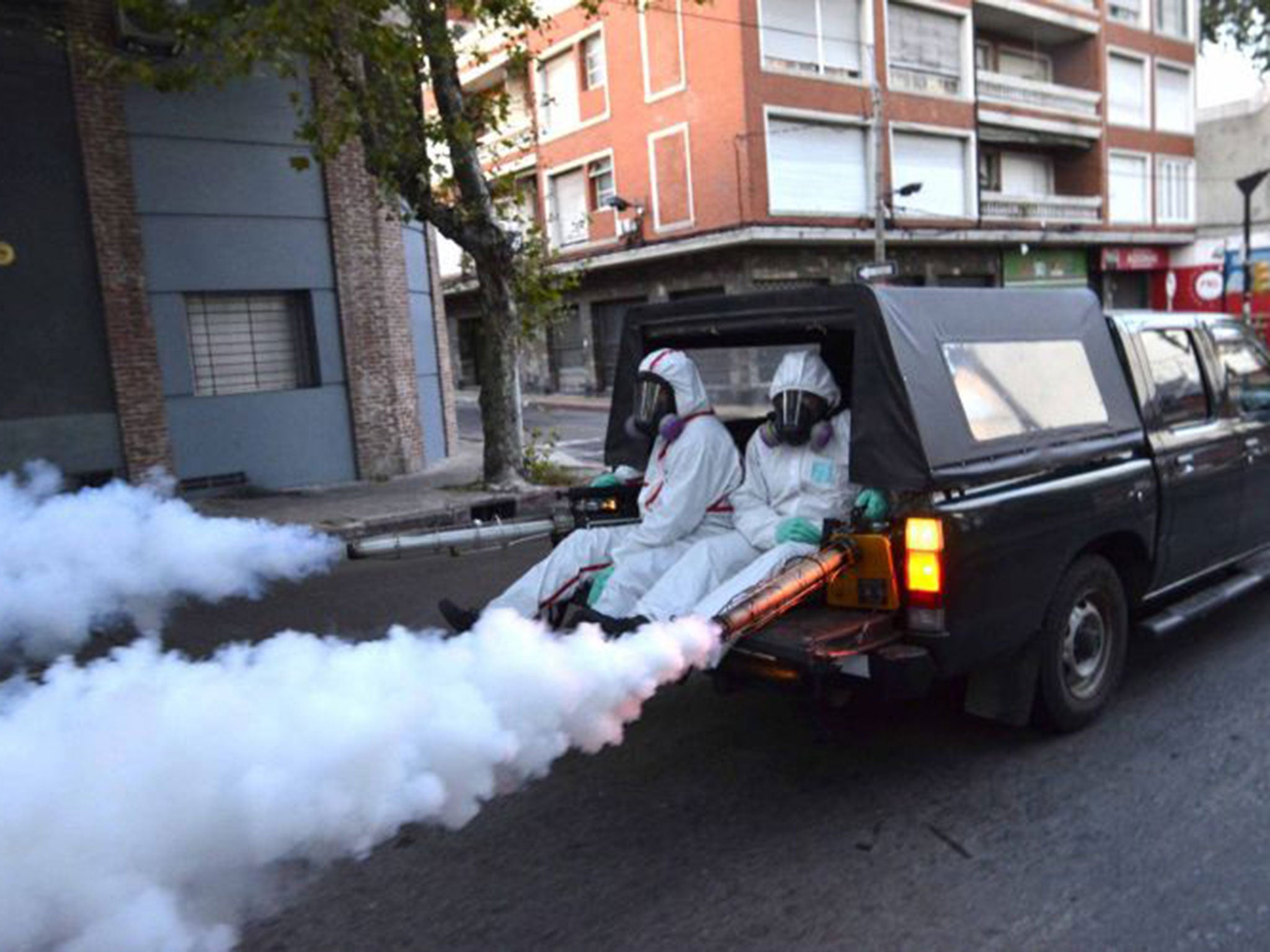Zika infections decline in parts of Latin America
New figures raise hopes that the virus may not produce as many infections as initially feared

Your support helps us to tell the story
From reproductive rights to climate change to Big Tech, The Independent is on the ground when the story is developing. Whether it's investigating the financials of Elon Musk's pro-Trump PAC or producing our latest documentary, 'The A Word', which shines a light on the American women fighting for reproductive rights, we know how important it is to parse out the facts from the messaging.
At such a critical moment in US history, we need reporters on the ground. Your donation allows us to keep sending journalists to speak to both sides of the story.
The Independent is trusted by Americans across the entire political spectrum. And unlike many other quality news outlets, we choose not to lock Americans out of our reporting and analysis with paywalls. We believe quality journalism should be available to everyone, paid for by those who can afford it.
Your support makes all the difference.The transmission of the Zika virus, which hit several Latin American nations, appears to have peaked as the number of infections has declined in recent weeks, according to governments in the region and the latest World Health Organisation data.
The slowdown has prompted some countries, including Colombia and El Salvador, significantly to scale back their projections of the impact of the virus. Epidemiologists warn the downward trend appears to be limited to certain countries and should not be interpreted as a sign the epidemic has started to ebb everywhere in the Americas. It still appears to be expanding in Brazil, the epicentre of the virus, they say. “It’s possible there will be a second wave of infection,” said Sylvain Aldighieri, head of epidemiological response at the Pan American Health Organisation. “But Zika has not reached its peak yet in Central America and the Caribbean.”
Still, the latest figures raise hopes that the virus, which scientists believe is linked to birth defects and the potentially deadly neurological disorder known as Guillain-Barré syndrome, may not produce as many infections as initially feared.
On Friday, US health experts met in Atlanta for a summit convened by the White House to help state and local governments formulate Zika response plans ahead of the summer, the most active season for the insect, which carries the virus.
Aedes aegypti, the mosquito which carries the virus, is found in southern US states along the Gulf Coast.
The Washington Post
Subscribe to Independent Premium to bookmark this article
Want to bookmark your favourite articles and stories to read or reference later? Start your Independent Premium subscription today.
Join our commenting forum
Join thought-provoking conversations, follow other Independent readers and see their replies
Comments